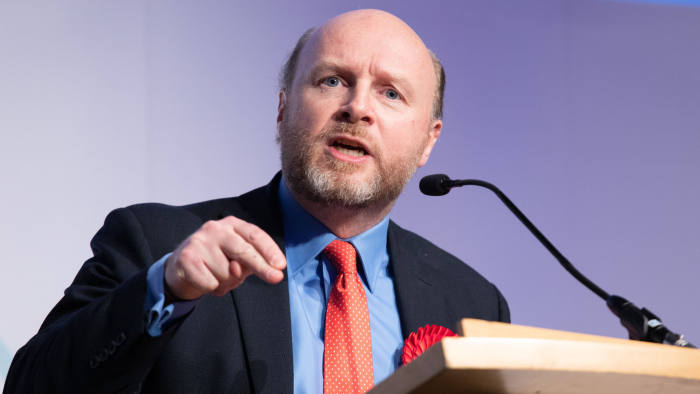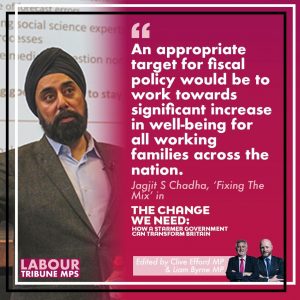With Brexit done and lockdown lifting, thinkers and think tanks are zeroing in on the decisive decade ahead for Britain. One book and one report are vital primers: the launch of Resolution Foundation’s Economy 2030 Inquiry and Peter Rickett’s Hard Choices.
Resolution Foundation has now emerged as the important economics think tank in Britain and its new Commission backed by the Nuffield Foundation will cement this hard earned status. Led by a galaxy of the country’s best thinkers, its launch paper is a both a withering assessment of the Tories’ lost past decade and a brutal expose of the gulf in Tory strategy for the years to come, years that will be dominated by the ABC of political economy; automation, Brexit and climate change.
‘The last decade’ the Commission confirms, ‘was the worst decade for pay growth since the 1930s.’ Average earnings are the same today as they were in 2008, there has been almost no income growth for the poorest for 15 years, and this group of our neighbours is 1/5 poorer than in France.
This challenge is deeply-rooted in what used to be called the British disease of terrible productivity, now 15% worse than France, Germany and America after a decade of the lowest productivity growth in 120 years. Now Brexit has increased trade costs, ‘there is no serious engagement with the economics of how to spread prosperity more widely between regions nor across households’, there is little plan to improve the quality of work, our rate of human capital improvement has slowed, plans for skills are undermined by a 10% cut in school spending per pupil and apprenticeship starts are down by 2/5 in the last five years. Our housing market impedes mobility, skills and welfare system do little to support retraining and nor can anyone detect any ‘concrete action to raise weak private sector investment… which forms the bulk of the productive capital stock.’ It is quite the record.
For the decade ahead, we are not without hope – there is always hope. There are strengths and opportunities. But frankly, the country is not well placed to seize them; ‘assessments of the U.K.’s economy have repeatedly highlighted weaknesses in the state institutional capacity, or wish, to shape industrial outcomes’ the Report concludes, ‘with no long-term frameworks to govern industrial strategy’ while ‘the ability of subnational government to manage change has also been weakened’. Nor does the Commission disguise the cost of getting it wrong. Not many are optimistic. In a poll at the Commission’s launch event, an overwhelming majority of the online audience forecast we were heading for Italian, not Germanic levels of growth. Grim.
Peter Rickett’s book is just as sobering, well seasoned and stress-tested with forty years front line experience as a diplomat and founder membership of David Cameron’s National Security Council. Hard Choices brings into focus the dilemmas of a ‘little Britain’ operating system in a world where great power competition is sharpening, nationalism multiplying and protectionism cutting into global trade.
The book is not without its flaws. Like many books written by former diplomats, it is a grand remonstrance against the absence of ‘grand strategy’ but then ignores any substantial discussion of how foreign policy should be cast to support economic growth, the national tax base or domestic living standards, each of which were the essential components of Britain’s ‘grand strategy’ (for better or worse) in the 19th century. It’s not mercantilist to ask these questions. They are the essentials of state strategy.
Ricketts, like the Resolution Foundation is good on our strengths; a world-wide diaspora of 5.6 million ex-pats, overseas investments worth £11 trillion (twice the size of France), inward investment of £13 trillion, armed forces capable of deployment anywhere in the world, and a British ‘brand’ buttressed by British sport, films, music, universities, and museums that lend us some of the best soft power in the world. Our legal system has a (good) global reputation, London is a key a financial centre, and DFID is a recognised leader in development. And that’s before we count our memberships cards for the UN Security Council, NATO, the Commonwealth, the G7 and G20, the OECD, the WTO, IMF and World Bank.
But, like a forensic pathologist of policy, Rickett’s lights up the gulf between the Tories’ rhetoric – and the reality. On the one had we have a National Security Strategy that professes our goals are “democracy, the rule of law, open, accountable governments and institutions, human rights, freedom of speech, property rights and equality of opportunity, including the empowerment of women and girls.”
In practice, we have pursued the hardest of exits from the world’s largest free trade area, sell arms to Saudi Arabia, cut aid in the middle of a pandemic, and appear unable to square our ambitions for rights with our ambitions to sign free trade deals with whoever will counter-sign.
Worse, Rickett’s arrives at the same conclusion as the Resolution Foundation: the twin pillars of our post-war policy – ‘close partnership with the US, and a leading role in European affairs’ are crumbling. But the Tory state is a weak state, without the capacity to work through the difficult challenges on the road ahead. ‘the NSC met only rarely in the first year of the Johnson government’ observes Ricketts, ‘Tools are of no use if they are left in the shed’.
Who amongst us, has any hope that Boris Johnson might lead us through the maze of choices ahead? A man who governs with word clouds, dead cats bounces and culture wars? A man determined to perpetuate the Supper Club conception of national leadership. This is no moment for a muddler – but a muddler in chief is what we have.
Where does the Tribune Group look for alternatives? To Bidenomics of course. The new President is winning votes, passing bills and crucially changing the weather, the intellectual climate of ideas. In a seminal brief from his Council of Economic Advisors, his team have taken aim at the foundation stones of market supremacy to argue that rolling back the state and rolling forward the market is no way to resolve the dilemmas of statecraft in the 21st century, for markets malfunction and it is states – especially creative states – that power progress. It notes upfront, ‘For the past four decades, the view that lower taxes, less spending, and fewer regulations would generate stronger economic growth has exerted substantial influence on U.S. public policy’ which together have resulted in under-investment in public goods and gains which flow disproportionately to the richest.
Bidenomics is different. It is clear that ‘a strong economy depends on a solid foundation of public investment, and that investments in workers, families, and communities can pay off for decades to come’ and that requires, investment in public infrastructure, which is ‘the scaffolding of economic activity’ – and innovation, because innovation is ‘drives growth, and the public sector plays a pivotal role in that process’. But what’s more, productivity demands investment in people – especially children – and the care systems for children and older citizens that allow everyone to actually participate in the economy. Explicitly, the Biden doctrine recognises the work of the IMF, OECD and others that inequality is bad for growth, hence the need for the luckiest in society to pay their fair share of tax.
Is this the space for a new Trans-Atlantic progressive alliance? It could be. In fact, it could be a case of back to the future. In his warm up chapter, Peter Rickett’s recounts the tale of the Atlantic Charter, crafted by Roosevelt, Churchill – and Attlee. Written as a statement of war aims, the President of the United States was determined to enshrine two decades of thought – and so was Clement Attlee.
Roosevelt therefore drafted into the Charter his ambitions to shape a world where all might live in ‘freedom from fear and want’. And after convening the Cabinet at 2AM in London to review a draft, Clement Attlee, replied adding the Fifth Principle, that the Charter should seek the ‘fullest collaboration between all nations in the economic field with the object of securing for all improved labour standards, economic advancement and social security’. As we face a decisive decade, those are pretty good words to guide us.
- The UK’s Decisive Decade: The Launch Report Of The Economy 2030 Inquiry, Resolution Foundation
- Hard Choices: What Britain Does Next, Peter Rickets (Atlantic Books, 2021)
- Building Back Better: The American Jobs Plan and the American Families Plan, Council of Economic Advisers, Issue Brief, May 2021.
Liam Byrne MP is the Labour MP for Birmingham Hodge Hill.





